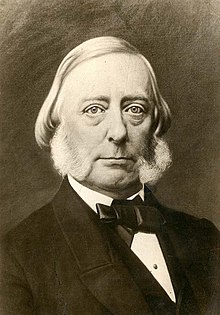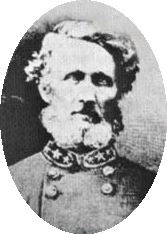1855 Kansas Territory elections
In response, Kansas Territorial governor, Andrew H. Reeder, ordered new elections to be held on May 22 in certain districts.
When the legislature convened in July, it promptly ejected all the Free-State candidates who had won seats in the May elections.
[11] On March 19, 1856, the US House of Representatives tasked a special committee, comprising William A. Howard (O-Michigan), John Sherman (O-Ohio), and Mordecai Oliver (O-Missouri),[12] with investigating "the troubles in the Territory of Kansas.
"[14] The majority also argued that, in their opinion, "the alleged Territorial legislature was an illegally constituted body, and had no power to pass valid laws, and their enactments are therefore null and void.
In this document, the majority agreed that "the election under which the sitting delegate, John Whitfield, holds his seat, was not held in pursuance of any valid law and that it should be regarded only as the expression of the voice of those resident citizens who voted for him.
"[14] However, the committee majority also argued that "the election, under which the contesting delegate, Andrew H. Reeder, claims his seat, was not held in pursuance of law, and that it should be regarded only as the expression of the resident citizens who voted for him.

